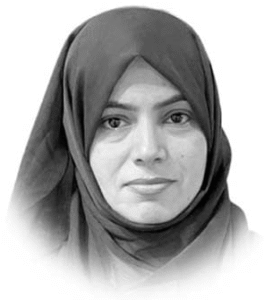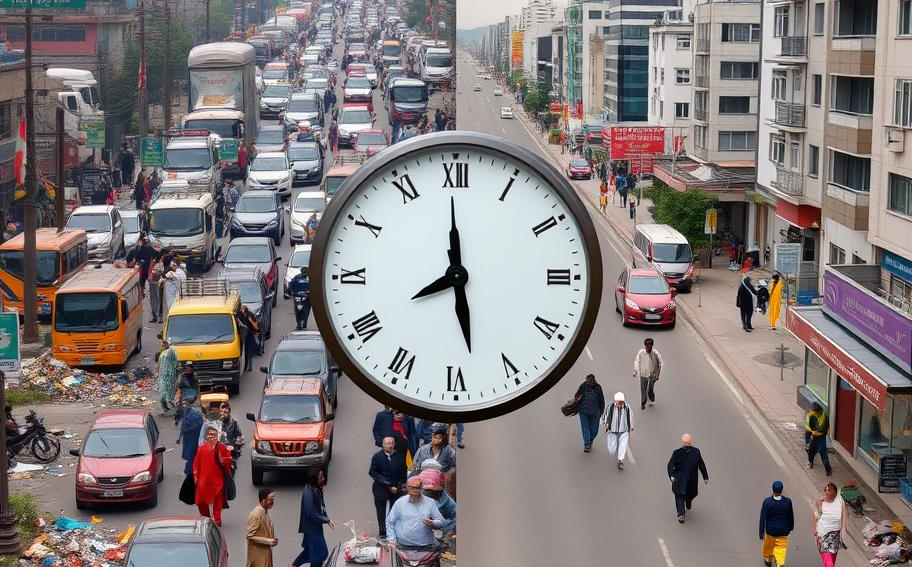
We all aspire to live better lives, yet often neglect the steps necessary to achieve them. Three critical areas where we frequently fall short are punctuality, discipline and honesty. Developed countries like the US, Japan, China and Singapore reach great heights of progress because they uphold these values. Pakistan needs to pursue these three principles to attain similar heights of progress.
Punctuality is a hallmark of all civilised nations. People in these countries understand the value of time and align their routines with nature. They rise early, typically before sunrise, and begin their workday by 6am. Their schedules are tightly regulated: breakfast at 5am, lunch at noon, dinner at 6pm and bedtime by 7pm. This disciplined lifestyle allows them to maximise their energy and stay in harmony with nature. Everyone, from the head of an institution to lower-level employees, adheres to the same timetable, promoting efficiency, accountability and a content, harmonious life.
In contrast, many in Pakistan start their day late, with office workers arriving as they please. This lack of accountability trickles down through all levels of employment, resulting in a general disregard for time. When time is not valued, it is inevitably wasted. The absence of discipline in daily routines leads to inefficiency and a disorganized society.
Discipline is essential in life. Unfortunately, many of our people lack it. There is little adherence to traffic rules, and humility is scarce. People seldom keep their word. Morality is rarely taught to children and adults alike. Elders are mistreated, women are disrespected, and people of lower status are disregarded. Animals are inhumanely treated and kept in cells as entertainers, reflecting a broader lack of ethical values.
In Western countries, there is a strong emphasis on discipline and respect. People adhere to rules and treat each other with dignity. Not only are humans treated with care, but animals are also subjects of love and attention. This disciplined approach results in a more harmonious and equitable society.
Honesty is another area where there is a stark contrast between civilised nations and our own practices. Western countries are often lauded for their cleanliness and integrity. We prefer products from multinational companies because they are perceived as higher quality and more durable. Imported goods are considered superior due to their better ingredients and production standards.
Civilised nations prioritise cleanliness and honesty in all aspects of life. Their roads, markets and residential areas are meticulously maintained. Honesty and fairness are integral to their dealings, not just with people but also with animals, reflecting their overall ethical standards.
In Pakistan, however, honesty and cleanliness are often lacking. Many products available in the market are of low quality, and services are poor. Items are frequently manufactured with substandard materials, resulting in short-lived products. Our roads, societies and markets are often dirty, and dishonesty is prevalent in business practices. Consumers are cheated with inflated prices and false measurements. Consumable goods like milk, curd, juices and cooking oil are often adulterated with artificial chemicals, compromising their quality and safety.
The health sector also reflects the disparity between different societal standards. In Pakistan, there is a wide gap in the treatment of rich and poor. The wealthy can afford exorbitant charges at well-equipped private hospitals, while government hospitals, which serve the poor, often lack necessary resources and facilities. Patients in public hospitals frequently receive inadequate care, contrary to the compassionate treatment they deserve.
The standards of punctuality, discipline and honesty define the quality of a society and its conduct towards fellow beings. The dishonest practices, lack of punctuality and inadequate health care prevalent in our country contrast sharply with the practices of civilised nations. For Pakistan to prosper, we must mend our ways. Only by following discipline, valuing time and practising honesty can we hope to improve our quality of life and meet our aspirations.
—
The writer is an educationist based in Larkana. She can be reached at sairasamo88@gmail.com





